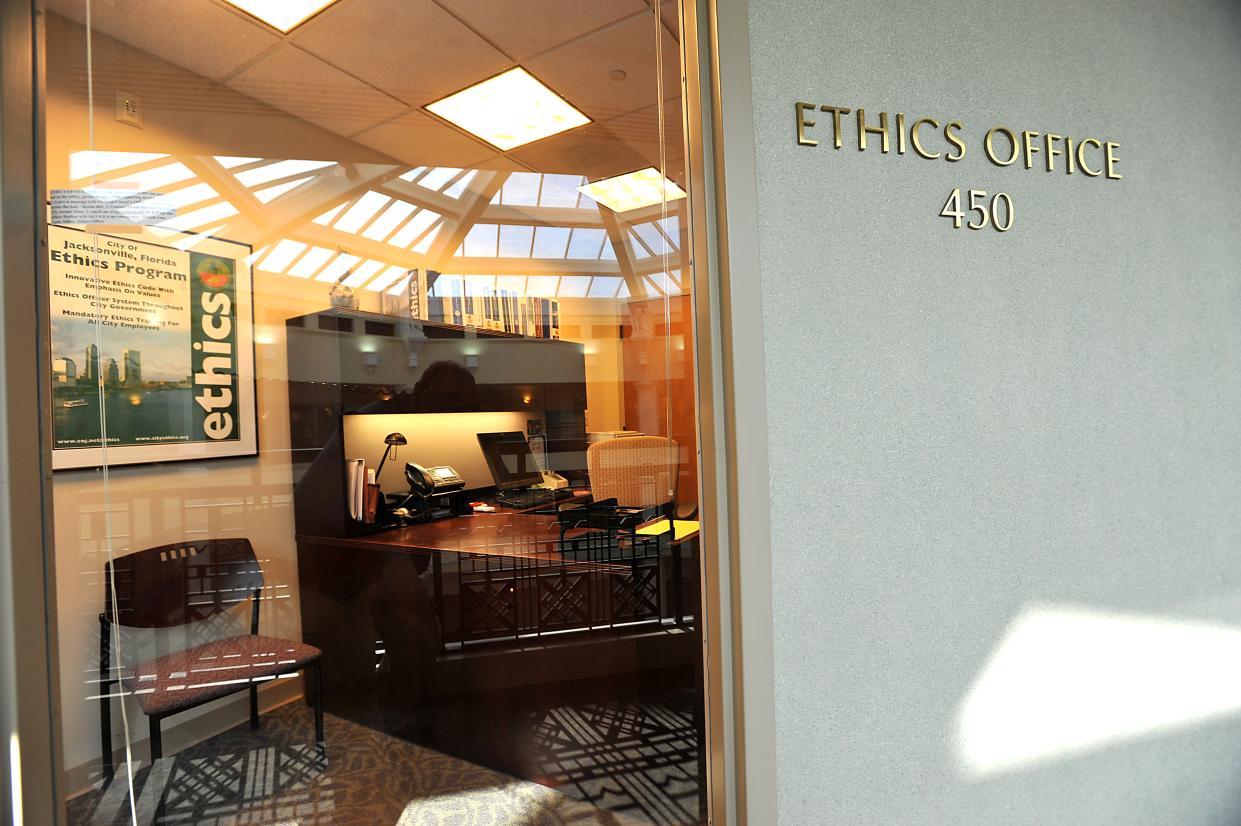In signing anti-ethics bill, DeSantis sides with crooked politicians | Commentary

- Oops!Something went wrong.Please try again later.
- Oops!Something went wrong.Please try again later.
Gov. Ron DeSantis on Friday evening signed legislation that will gut the ability of local ethics watchdogs to investigate allegations of corruption, a bill whose most toxic and sweeping provisions were late-hour additions by state Sen. Danny Burgess, R-Zephyrhills, and hardly debated before their passage.
In signing the bill, DeSantis ignored the pleas of ethics officials and good-government advocates who hoped he'd veto the measure, throwing in his lot instead with crooked elected officials whose misdeeds will now have a greater chance of flying beneath the radar. In contrast to his usual bravado — staging winding and perplexing news conferences to celebrate bills he's proud of — DeSanits' office announced the bill signing Friday evening, ensuring scant coverage of the development. Not every Florida county and city has a local ethics commission, but in those that do, like Miami, Jacksonville and Palm Beach, the offices can play sometimes critical roles sniffing out and policing misconduct by local elected officials. That will likely end with DeSantis' signature.
"It would change the way we've done business since the 1990s," Jose Arrojo, executive director of the Miami-Dade County Commission on Ethics and Public Trust, told me months ago, during the brief time legislators were considering the bill.
The ethics rewrite will prohibit local ethics officials from using anonymous complaints as a basis to start an investigation, and it will severely restrict the kind of evidence they can consider. Going forward, an investigation can only be prompted by a signed and sworn complaint from someone who possesses "personal knowledge" of a potential violation. Those might sound like anodyne changes, but ethics experts fear the new requirements will chill potential whistleblowers from coming forward — since their identities will now have to be made part of the public record. And most critically, the "personal knowledge" requirement will likely render the most common kinds of evidence of wrongdoing useless.
Who, after all, possesses "personal knowledge" of another's ethical lapse? "People don't commit ethics violations and then invite someone in to witness them," another ethics official told me earlier this year. Remember: this isn't about what's required to actually convict or even charge someone for misconduct; this is merely about how hard it will be for an ethics watchdog to look into an allegation in the first place.
Under this ludicrously heightened standard, even public sources of information like campaign finance reports and audits could be ruled out as tools investigators could rely on to form a basis for an investigation. An ethics official could read thoroughly reported allegations in the local newspaper and nonetheless be powerless to do anything: None of those documents or accounts are "personal knowledge" of a potential violation.
Burgess has blown off these concerns and claimed he was merely trying to impose a uniform standard across the state for how ethics investigations are done. The basis for this "need" for a uniform standard is that the state ethics commission has long been significantly more hamstrung than the local commissions, a discrepancy Burgess found to be a problem. But he notably chose to impose the worst standard: This law will make local ethics commissions more like their hapless state counterpart, rather than simply giving the state commission the same kind of latitude to probe allegations of corruption. Burgess has successfully imported Tallahassee's rot into local communities across Florida.
This was one bit of dirty business even DeSantis was too ashamed to carry out in broad daylight.
Nate Monroe is a Florida columnist for the USA Today Network. Follow him on Twitter @NateMonroeTU. Email him at nmonroe@gannett.com.
This article originally appeared on Florida Times-Union: Florida Gov. Ron DeSantis signs anti-ethics bill into law

